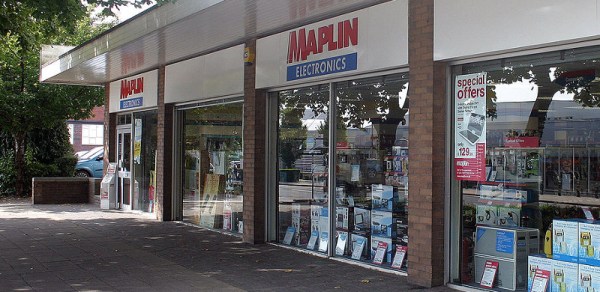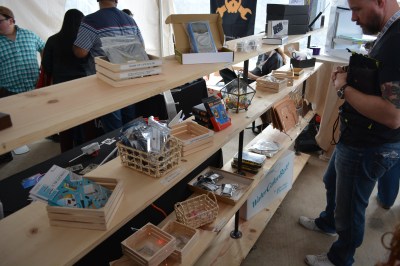Well, that was quick. Four days ago we mentioned that the British electronics retail chain Maplin was being offered for sale, and today it has been announced that no buyer has been found and the company is going into administration.
We dealt with all the nostalgia for what was roughly a British equivalent to Radio Shack in our previous post. Perhaps now it’s time to look beyond the jumpers-for-goalposts reminiscences about spaceships on the catalogues for a moment, and consider what this means for us in 2018.
It’s fairly obvious that a retail model for selling either electronic tat or components is no longer viable in an age of online ordering and availability of almost anything at knock-down prices for anyone prepared to wait for a packet from China. This applies on both sides of the Atlantic, but for British retailers, the killer combination of very high rents and local business taxes makes it particularly difficult. Maplin were extremely convenient when you needed a part immediately, but the universal reaction from Hackaday readers was that they were overpriced. It’s the same story that has cleared away numerous chains in other sectors, and the toxic view that retail property is still the goldmine it might have been in decades past is largely responsible.
Despite all that, there must still be some demand for electronic components at a retail level even if the economics no longer support a showroom model. Perhaps a trade counter operation might have better luck, it will be interesting to see whether suppliers such as RS Components or CPC expand their networks to try to capture that business. Whatever happens, we’ll keep you posted.





 At SXSW Create in March the Hackaday booth was right next door one such establishment. [Martin Bogomolni] is hard at work launching his brick and mortar store called
At SXSW Create in March the Hackaday booth was right next door one such establishment. [Martin Bogomolni] is hard at work launching his brick and mortar store called 








